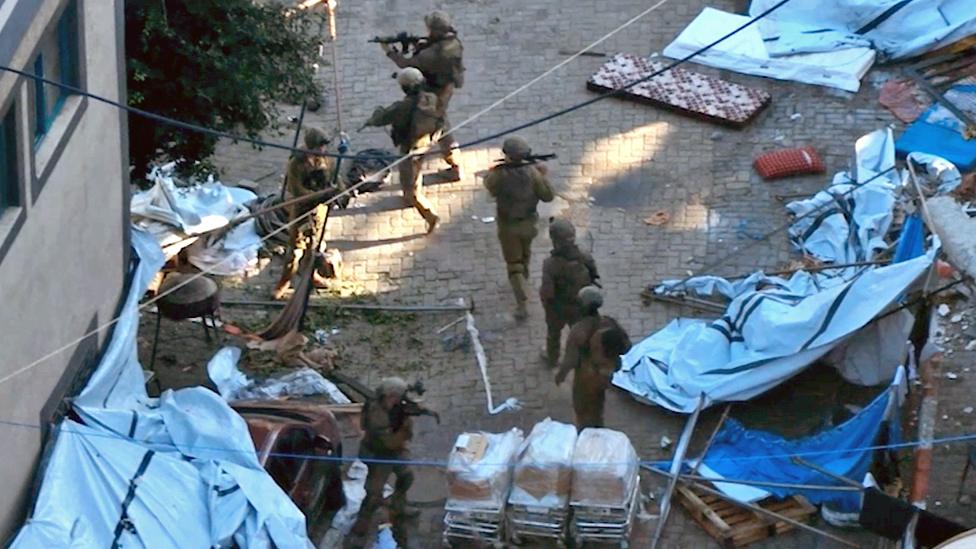Israel-Gaza war: The Red Cross's delicate role in hostage crises
- Published
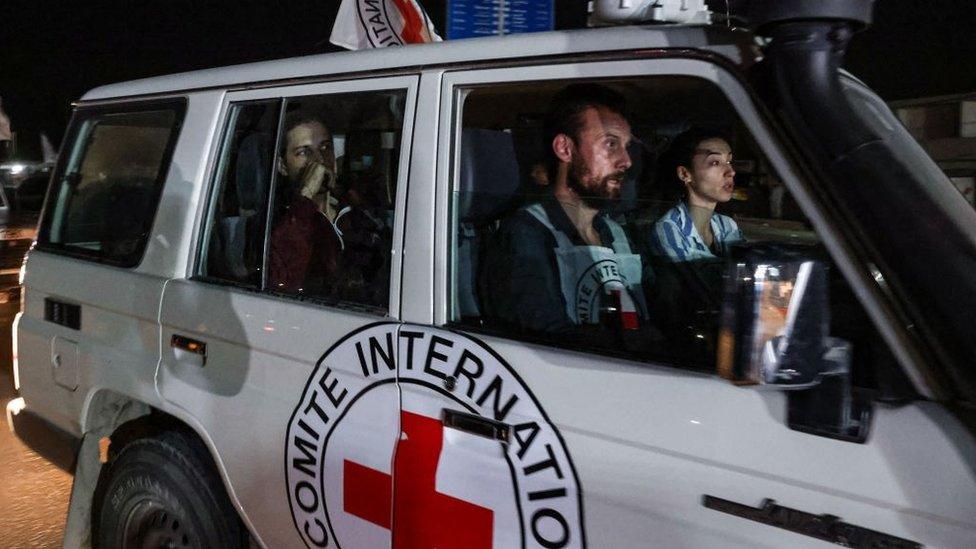
The ICRC requires the trust of all sides when each side do not trust the other
With intense focus on the hostages released by Hamas, a quiet but crucial part has been played by an organisation at the centre of their handover, the International Committee of the Red Cross (ICRC).
Footage of the releases shows Red Cross staff, in their distinctive white vests emblazoned with its internationally recognised emblem, taking the hostages from masked gunmen, carefully helping them into their vehicles, giving them first aid and even playing with children in their first moments of freedom.
The organisation was in contact with Hamas ever since it seized about 240 people during its massive attack on Israel on 7 October and took them back to Gaza. It has repeatedly called for their release, or at least to allow the ICRC to visit them.
So far, 58 hostages - 40 Israeli and 12 Thais - have been released to the ICRC. The organisation was not involved in the negotiations around the terms for a release, but was standing by to facilitate the release once those terms had been agreed.
From Israel, there has been some criticism that the ICRC has not done more.
But the organisation said "the ICRC cannot force its way in to where hostages are held, nor do we know their location".
The statement reflects frustration in Geneva that not everyone understands what the Red Cross can and cannot do.
It is trying to fulfil its traditional role under the Geneva Conventions, asking to visit the hostages, deliver medical supplies, and bring news to desperate families. None of that can happen unless both Hamas and Israel agree. The ICRC is unarmed, and relies entirely on the trust of the warring parties - and civilians caught up in conflict - to carry out its work.
And in the same way as it has transported hostages out of Gaza, it has also taken to their West Bank homes Palestinian prisoners released by Israel in exchange.
The logistics are a complicated but the ICRC is no stranger to such complexities. Last year it facilitated the release of almost 900 prisoners in Yemen held by Houthi rebels and Saudi-backed government troops.
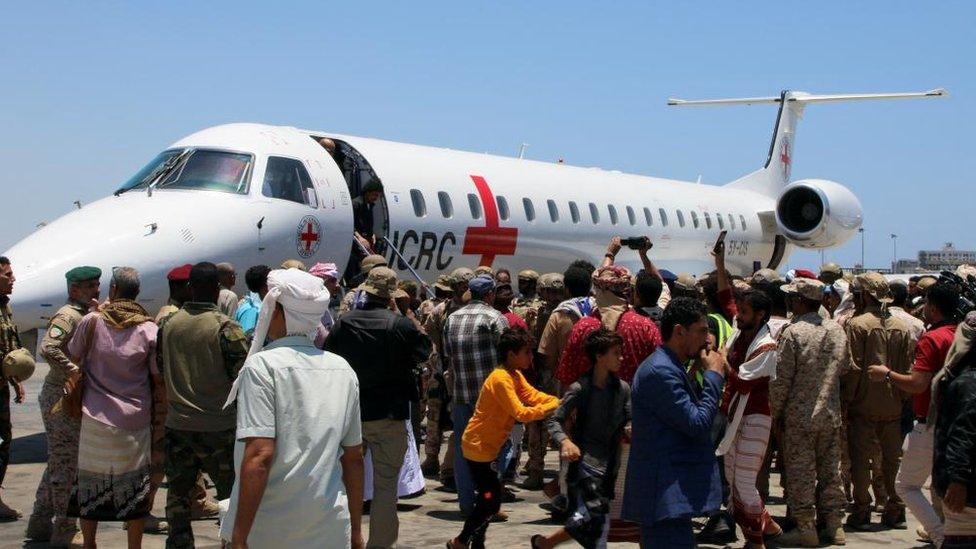
The Red Cross has been facilitating prisoner releases in Yemen
The operation took two days; the ICRC visited each prisoner to ensure they were well enough to travel and actually wanted to return home and then chartered planes to fly into conflict zones to pick them up.
At the time Fabrizio Carboni, the ICRC's regional director for the Middle East, admitted how relieved he had been that the exchange went quite smoothly. Often, he said, the life of an aid worker is "about frustration… it's about saying more often 'no' than 'yes'".
New challenges
The preparations the ICRC has been making for the Gaza hostages are part of a long history.
In the Red Cross museum in Geneva, there is an archive of six million registration cards, with details of the prisoners and the missing from two world wars.
It's a fascinating collection: one card confirms that Charles de Gaulle, France's World War Two leader and later its president, had been taken prisoner at the battle of Verdun in 1916. Others show the anxiety of mothers looking for their sons, and the sad replies confirming they had been killed.
The collection illustrates the ICRC's key role under the Geneva Conventions: tracing the dead and missing, visiting prisoners of war, checking on their welfare, and exchanging messages between POWs and their families.
In a quiet building in the hills above Geneva, the Red Cross tracing agency is now doing exactly the same for Russian and Ukrainian families as the war resulting from Moscow's full-scale invasion in 2022 continues.
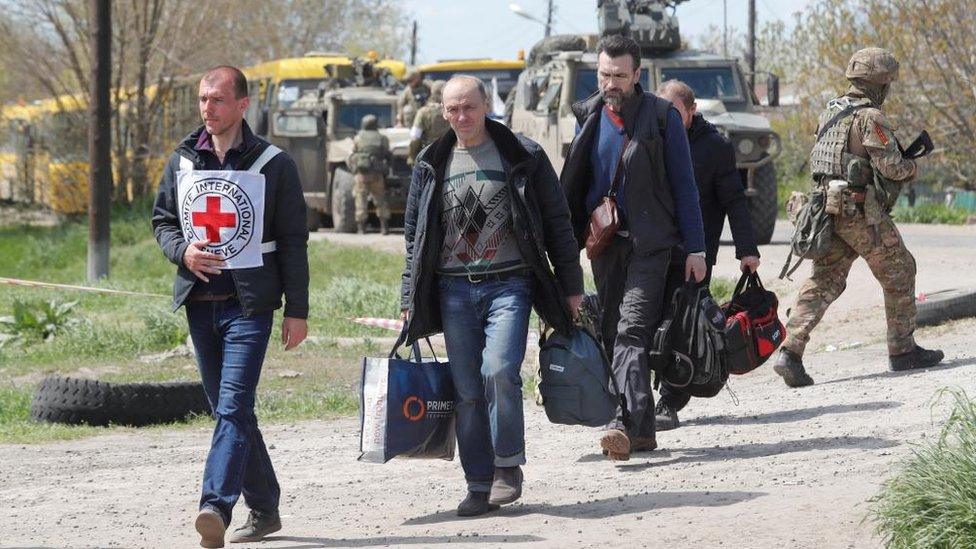
A Red Cross staff member walks with civilians who left a steel plant that was besieged by Russian forces attacking the Ukrainian city of Mariupol in May 2022
But in the century between World War One and today, the ICRC's work has expanded.
Warfare has changed. Traditional armies are often replaced by armed militias, and civilians as well as fighters are detained, abducted or simply go missing.
The Red Cross aim remains the same: to bring news of missing loved ones, and - if possible - to reunite families separated by war.
Global hotspots
During Nelson Mandela's long imprisonment in apartheid South Africa, the ICRC visited him regularly on Robben Island.
Until the Good Friday agreement for peace and power sharing in Northern Ireland, the ICRC visited members of paramilitary groups who had been imprisoned there.
The Red Cross also helps with prisoner exchanges, and the release of those abducted or taken hostage.
When hundreds of schoolgirls were abducted by Boko Haram in Nigeria in 2014, the ICRC helped facilitate the release of some of them two years later.
But, as with the hostages in Gaza now, supporting, or facilitating, did not mean negotiating.
"We were not involved in the negotiation for their release… we transferred the girls with the agreement of both parties involved," the ICRC said at the time.
Mr Carboni, who accompanied his boss Mirjana Spoljaric to Qatar earlier this week, explained how the Red Cross sees its fundamental role, relatively unchanged for more than a century.
"I look at my kids, I look at my brothers, and I say 'imagine now there is a front line between us, they are captured, and I can't see them'. Or worse, you have no news, you don't know.
"So when we manage to reunite people, it's something hard to describe, this sense of purpose," he says.

More on Israel-Gaza war
Follow live: Latest updates
Gaza Strip mapped: Life in Gaza under siege
Reporting: Assessing video Israel released of tunnel and hostages
Explained: The faces of hostages taken from Israel
History behind the story: The Israel-Palestinian conflict
- Published20 November 2023
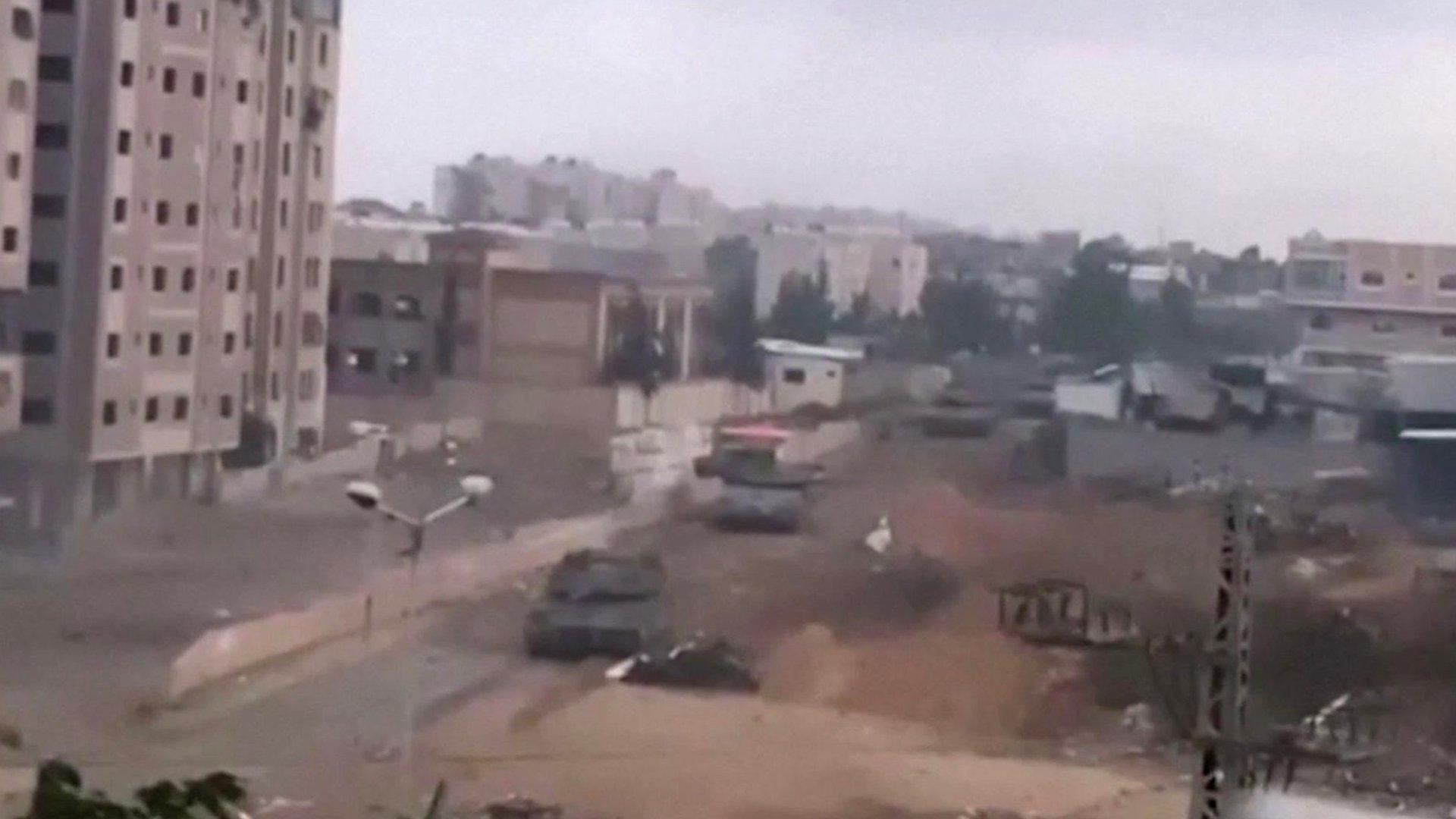
- Published20 November 2023
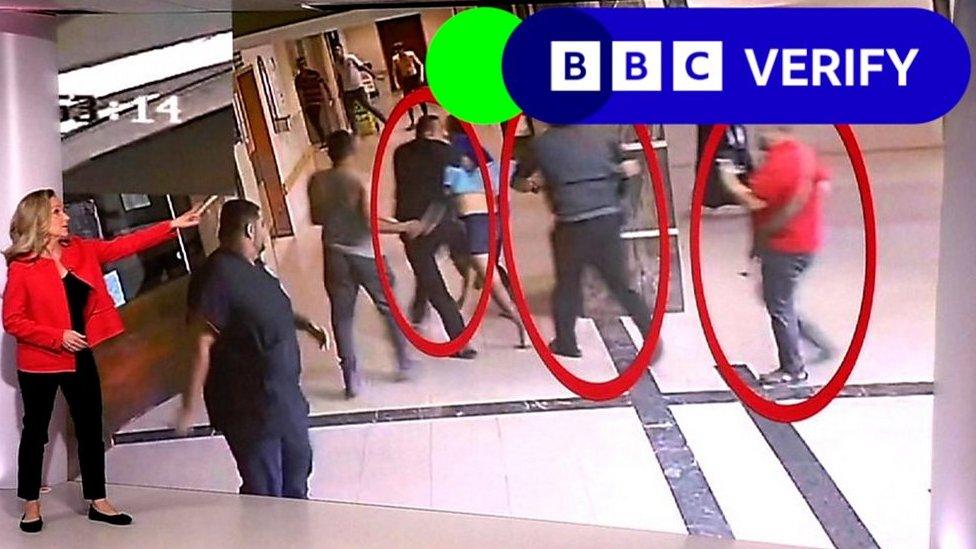
- Published19 November 2023
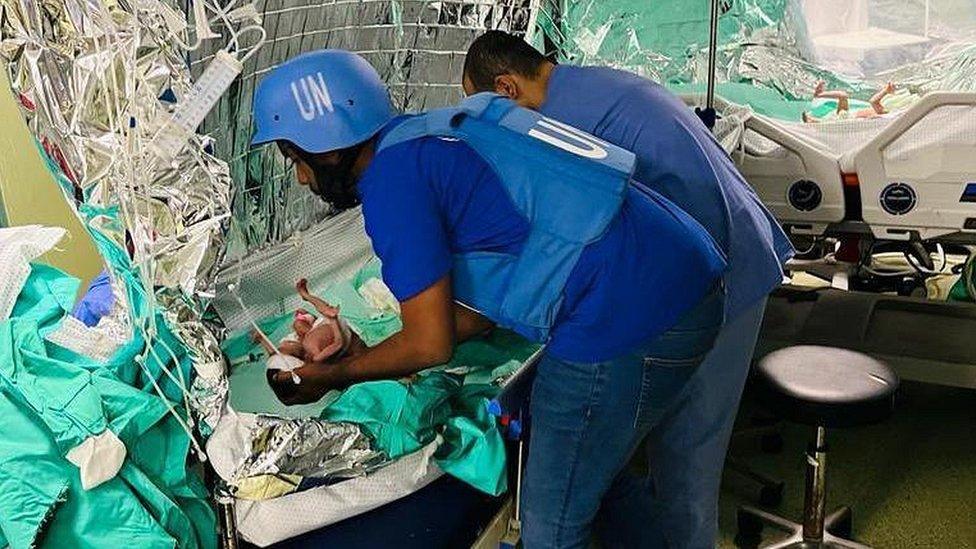
- Published19 November 2023
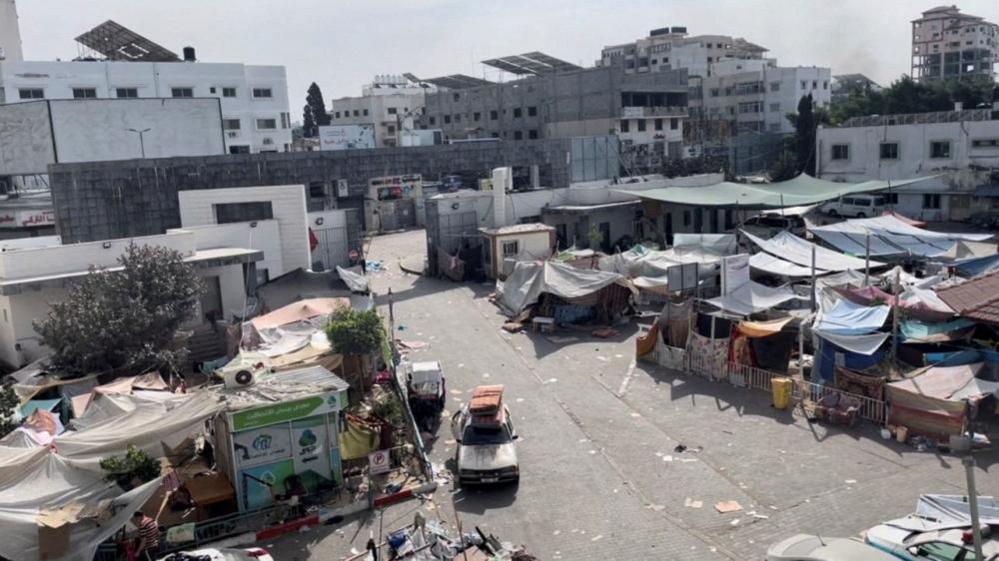
- Published19 November 2023

- Published17 November 2023
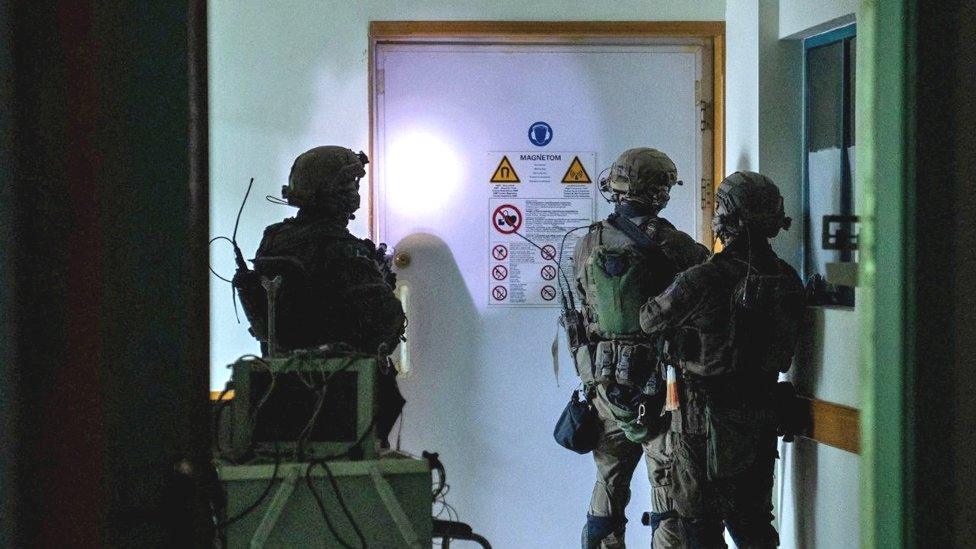
- Published15 November 2023
